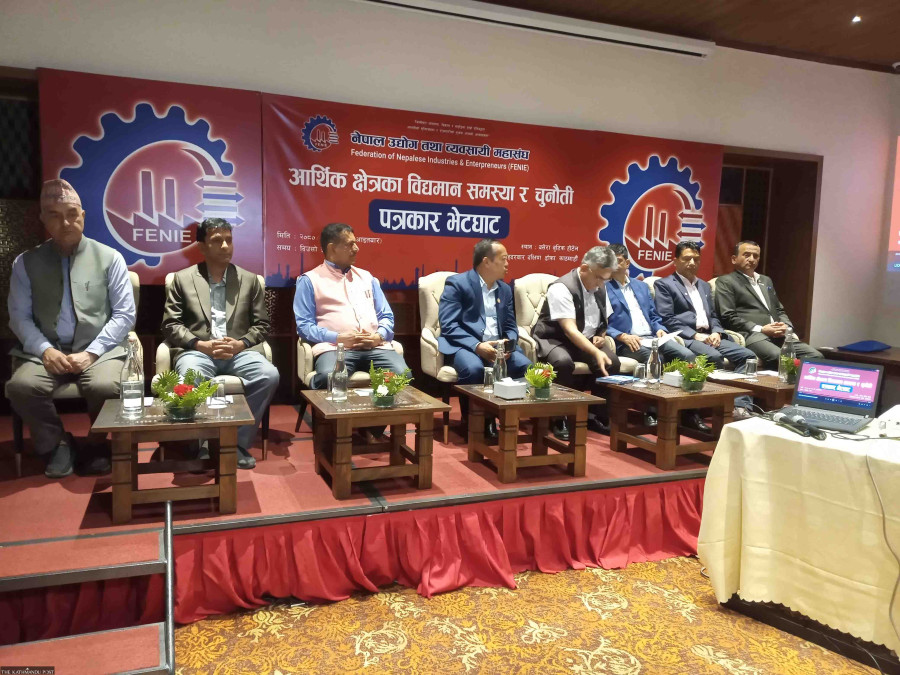Money
Government urged to be sensitive towards economy
The private sector has suggested the government adopt appropriate policies to address the current economic crisis.
Subin Adhikari
The measures adopted by the government are not enough to bring the ailing economy back on track, experts said on Sunday.
They said that the government has been bringing in ad-hoc policies that continue to hurt manufacturing, trading and other economic activities.
Lal Prasad Sawa Limbu, president of the Federation of Nepalese Industries and Enterprises (FENIE), said that middle-class factory owners and merchants are hit hard by the current economic crisis.
“The large-scale factories’ production capacity has dropped by 50 percent.”
In the last fiscal year ending July 16, Nepal’s economy grew by 1.86 percent as against the government’s projection of 8 percent at the beginning of the fiscal year. This is the lowest growth since the fiscal year 2015-16.
“The incumbent government, instead of bringing relief packages to support the businesses, has halted payment for the construction workers which is worth Rs50 billion,” said Limbu, a lawmaker, representing CPN-UML.
“Due to the economic slowdown, the government’s revenue decreased by 16 percent in the last fiscal year. But still, it doesn't have a comprehensive plan to revive the economy.”
The private sector has suggested the government adopt several policies to address the current economic crisis.
They have suggested releasing the payments to the construction sector immediately, renewing the licence and permits of crusher plants, removing the upper limit of Rs120 million of loans against shares, establishing a regulatory body for the cooperative sector and removing the value-added tax (VAT) imposed on agricultural products, carpet industries and airfare.
“The government is bringing economic policies without consulting the private sector which contributes to around 80 percent of the country’s gross domestic product (GDP),” said the federation.
“There is no coordination among the government, central bank and the tax authorities. The policies adopted by the government are frightening the investors.”
Surendra Pandey, former finance minister, said the government is taxing all the essential items.
The government has targeted to collect revenue of Rs1.24 trillion in the current fiscal year.
“Though the government is under pressure due to the shortfall in revenue, heavy taxes will only make investment in Nepal costlier,” said Pandey.
“This kind of ad-hoc policies will encourage capital flight.”
Pandey also suggested the central bank categorise agriculture separately from the other sectors to prioritise current working capital loans and other loans as they are connected to the livelihood of the people.
The private sector representatives also accused the central bank of micromanaging the economy with impractical rules.
Bhagirath Sapkota, general secretary of the federation, said that although the investors of the share market have lost more than Rs15 billion in the last two and half years, the government has never consulted with the investors to make the necessary amendments in policies to boost the confidence of investors.
“The cooperative sector commands a great portion of the rural and informal economy. And even though the depositors have lost more than Rs8 billion in the last couple of years, the government has paid little attention to recover their loss and increase financial literacy among people,” said Sapkota.




 21.3°C Kathmandu
21.3°C Kathmandu














